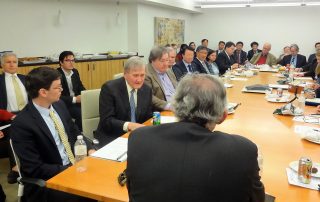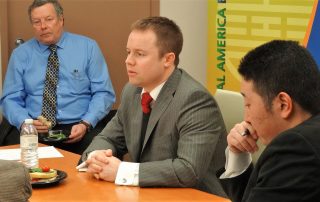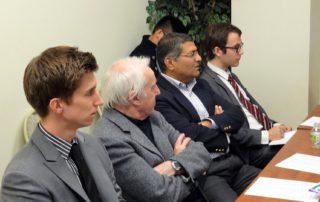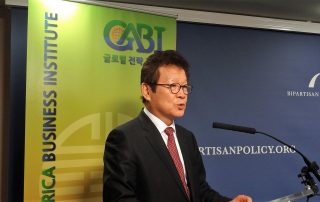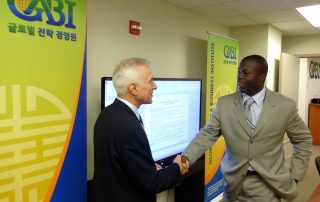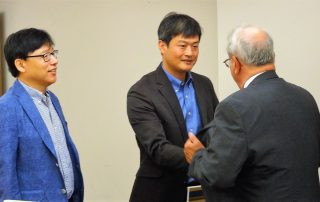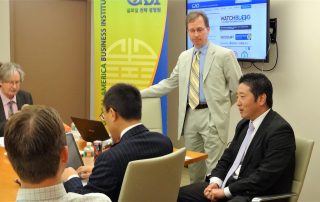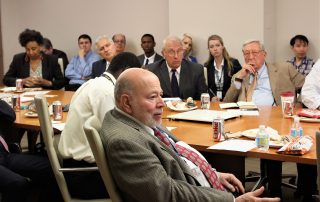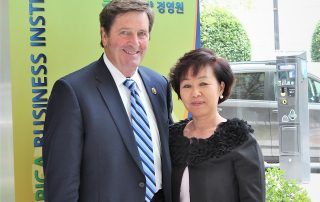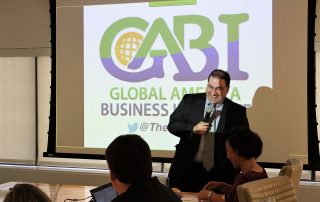GABI organizes nuclear energy roundtable discussions on a diverse range of topics that are relevant to nuclear markets both in the United States and globally. The discussion topics range from the civil nuclear partnerships, nuclear safety, nonproliferation, spent fuel management, international R&D and commercial collaboration, market and industry forecasts, and other related topics.
Everything You Want to Know About the 2016 Nuclear Industry Summit
March 28, 2016 The 2016 Nuclear Industry Summit (NIS) will include a final joint statement from the reports from working groups and previous summits, underscoring the important role of the nuclear industry internationally in setting high standards and best practices for the secure use, storage, and transport of nuclear and radiological materials. The 2016 NIS

